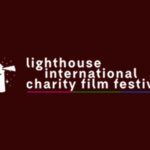
The lighthouse international charity film festival in China will be organized between 30 March and 5 April 2019, and our colleague Emil C Toescu will also give a lecture on the following topic:
9:00-9:30 31/03/19 CM
Emil C Toescu
Clinically defined in 1943, autism is seen now as a complex set of behavioural changes, better defined as a “spectrum disorder”. Despite richer and richer clinical descriptions, we still know very little about the causes of autism, with an elaborate combination of genetic and environmental factors contributing to the morphological and functional changes in the brain that contribute to the behavioural (clinical) expressions. Some researchers and cognitive behaviourists highlight some positive strengths in people with autism, particularly the mild forms, but overall the autism spectrum disorder (ASD), particularly in the severe forms of manifestation, is perceived as a disease that requires treatment and intervention. To be effective, such interventions require a good understanding of the underlying processes. In this presentation, I will attempt to provide a basic neuroscience primer of the major pathological changes described. Some of them are at the level of synaptic function, that important structure that mediates the transfer of information from one neurone to the other. Another level is that of understanding the basics of the excitation/inhibition balance in regulating the transfer of information in the brain. And finally, at the functional level, ASD has been described as a dysregulation of the connectivity between different regions in the brain, with an increase in the sensitivity of some and a decrease in the strength of others. It is hoped that such a primer can inform the subsequent discussions of the empirical types of intervention in ASD, exemplified by the successful applications of art therapy.
More information about the event: http://i.cafa.edu.cn/sub_liff/en/